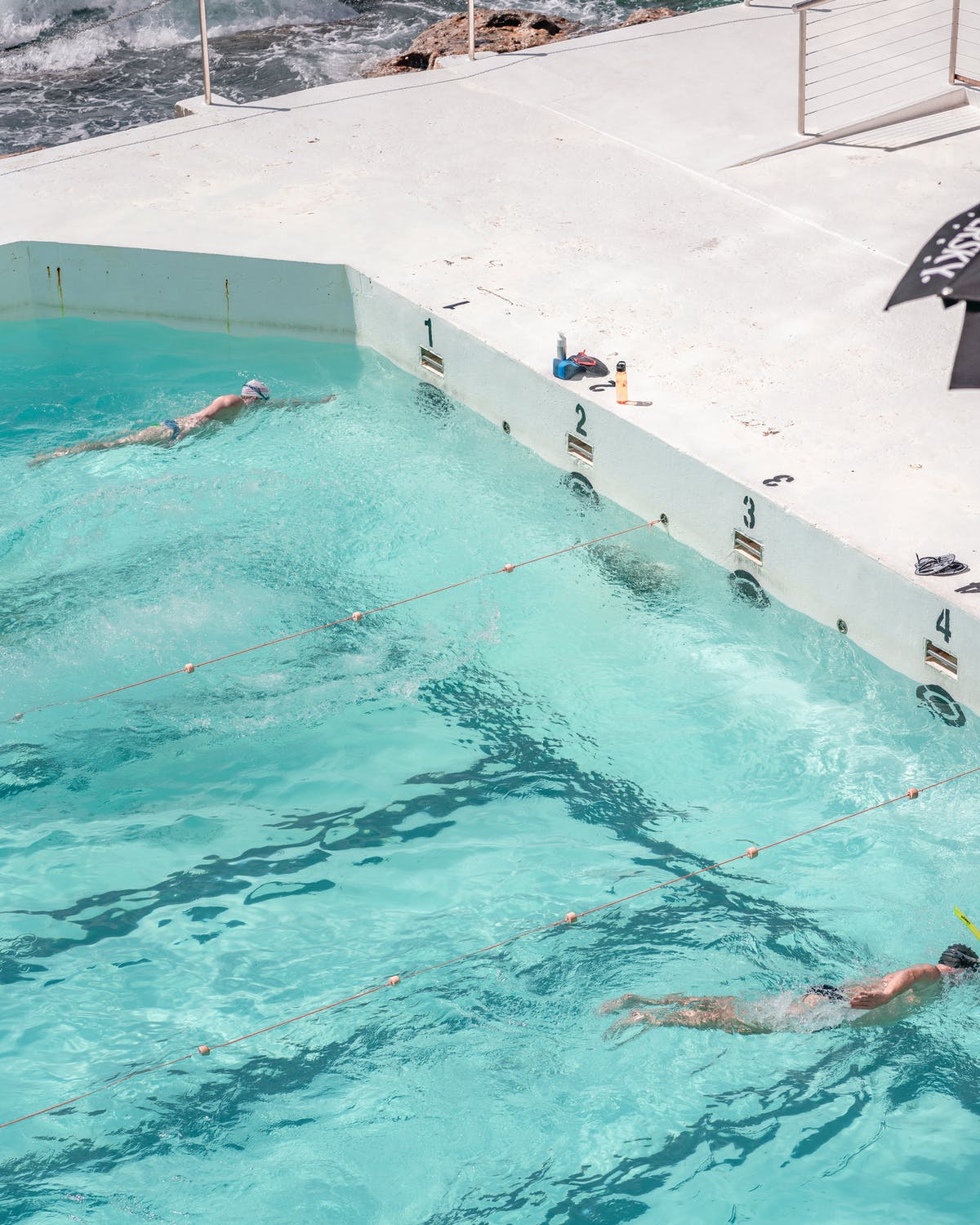For many of us, working out and going to the gym is all about what we see in the mirror.
We want to lose a few pounds to fit in that dress or favorite shirt. We want to slim down to attract that special someone of the opposite sex. Or we want to see some more muscles and less body fat in the reflection looking back at us.
But exercise, and lap swimming specifically, offer a robust number of mental health benefits as well.
Here are some reasons that heading down to your local pool and swimming some laps can mentally and emotionally benefit you.
Lap swimming gives you a blast of the “feel good” hormones. Endorphins, the “feel good” hormone, is released when we exercise. It’s that warm sense of accomplishment when we are pushing ourselves in the pool. Endorphins are a powerful tool for the body to help deal with stress and pain and promote a general sense of wellness.
Reduces stress and tension. Modern life is surprisingly stressful and 2020 has been a particularly stressful one. With a worldwide pandemic and economic uncertainty, anxiety and stress are higher than ever. Lap swimming is a perfect way to get a reprieve from the stress and uncertainty. Researchers (Berger and Owen, 1992) found that swimming laps for just 30 minutes a day significantly decreased tensions and depression markers with college-aged men and women.
Teaches you to manage your breathing. Our breathing is something we don’t think about very much over the course of the day. It’s one of those automated behaviors that run in the background like an app on our smartphone. But when we are stressed, our breathing becomes shallow and we breathe from our chest instead of our belly. One of the best health benefits of swimming is that it teaches you to be very aware of your breathing. Exhaling and inhaling properly and deeply while swimming reduces blood pressure and serves as a powerful reminder to breathe like a champion in and out of the water.
Encourages blood flow to the brain. The supercomputer between our ears needs a strong supply of blood. This is probably not something that you think about very often—after all, how do you “try” to send more blood to your brain?—but immersing yourself in water has been shown to increase blood flow to the brain. Research has found that just getting into the water—no laps necessary—can effectively do this, while other studies detail how swimming for exercise can even reverse brain damage by promoting the creation of new neurons.
Helps you sleep at night. Stress reveals itself in a variety of ways that affect us on a daily basis, and one of the more nefarious symptoms of being stressed out is an inability to fall asleep at night. Laying in bed, in the dark, with our eyes closed our mind races with worries and thoughts about work, our personal life, and the future. Researchers (Reid et al, 2010) found that even 15 minutes of lap swimming, three times per week were enough to help adults suffering from insomnia fall asleep easier. Not only did they fall asleep sooner, but their sleep was deeper and interrupted less often. Being able to cope with the emotional and mental stress of life requires us to be able to rest and recuperate at night, and swimming laps, even if it’s just during your lunch break or for half an hour, can help slow down that racing mind, promote a sense of well being, and help you get the sleep you need.
Unplugging from the stress of “real” life. Our lives can often feel like a blur. Competing tasks and demands fly at us from every direction. New social causes flood our social media feeds, making us feel like we are perpetually not doing enough. Our smartphones are steadily dripping notifications, a never-ending demand on our attention. All combined, all of this tugging and pulling makes us feel like we are losing control of the only thing we actually own—our concentration and attention. Hopping into the cold water of your local swimming pool and spending time with the black line below is a rare respite from the demands of our smartphones, jobs, and loved ones. For a few moments, we are free, both physically, buoyed by the water, and mentally, from the grip of being totally connected.

